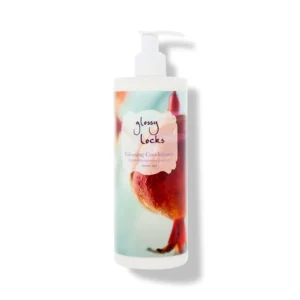From Roots to Tips

Conditioner: a staple in most haircare routines, yet finding the perfect formula can sometimes feel like searching for a needle in a haystack. With the rising popularity of clean beauty, more and more consumers are seeking conditioners that not only nourish their hair but also align with their values of using natural, non-toxic ingredients. However, navigating the world of clean conditioners can be overwhelming, with a myriad of options boasting various claims and formulations. In this guide, we’ll delve into the clean conditioner conundrum and provide you with essential tips for finding the perfect formula for your hair.
Before we dive into the specifics of clean conditioners, let’s first clarify what clean beauty means. Clean beauty refers to products that are formulated without potentially harmful ingredients such as sulfates, parabens, phthalates, synthetic fragrances, and silicones. Instead, clean beauty products prioritize natural and organic ingredients that are safe for both your body and the environment.
Identifying Your Hair Type and Needs
The first step in finding the perfect clean conditioner is to identify your hair type and specific needs. Is your hair dry and prone to frizz? Are you dealing with damage from heat styling or chemical treatments? Do you have fine hair that gets weighed down easily? Understanding your hair’s unique characteristics and concerns will help you narrow down your options and choose a conditioner that addresses your specific needs.
Key Ingredients to Look For
When shopping for a clean conditioner, pay attention to the ingredients list and look for nourishing, plant-based ingredients that will benefit your hair. Here are some key ingredients to look for in a clean conditioner:
- Coconut Oil: Known for its moisturizing properties, coconut oil penetrates the hair shaft to hydrate and soften dry, damaged hair.
- Shea Butter: Rich in vitamins and fatty acids, shea butter helps to nourish and strengthen the hair, leaving it smooth and manageable.
- Argan Oil: Packed with antioxidants and omega fatty acids, argan oil helps to repair and protect the hair from damage while adding shine and softness.
- Aloe Vera: Soothing and hydrating, aloe vera helps to moisturize the scalp and hair, reducing frizz and promoting healthy hair growth.
- Jojoba Oil: Similar in structure to the natural oils produced by the scalp, jojoba oil helps to balance oil production, making it ideal for both dry and oily hair types.
Glossy Locks Glossing Conditioner

Consider Your Hair Texture
In addition to considering your hair type and needs, it’s essential to take your hair texture into account when choosing a clean conditioner. For example, if you have fine hair, you’ll want to avoid heavy, creamy formulas that can weigh your hair down and make it look greasy. Instead, opt for lightweight, volumizing conditioners that won’t leave residue or flatten your hair.
Conversely, if you have thick or curly hair, you’ll need a richer, more moisturizing conditioner to hydrate and define your curls. Look for creamy, nourishing formulas that provide intense hydration and help to tame frizz and flyaways.
Trial and Error
Finding the perfect clean conditioner may require some trial and error, as what works for one person may not necessarily work for another. Don’t be afraid to experiment with different formulas and brands until you find the one that suits your hair type, texture, and preferences.
Many brands offer sample sizes or travel kits, which allow you to try out different products without committing to a full-sized bottle. Take advantage of these options to test out various conditioners and determine which one delivers the best results for your hair.
DIY Options
If you prefer to take a hands-on approach to your haircare routine, you may want to consider making your own DIY conditioner using natural ingredients. Homemade conditioners can be tailored to your specific hair needs and are often free from harsh chemicals and preservatives.
Popular DIY conditioner ingredients include avocado, banana, honey, olive oil, and yogurt, all of which are nourishing and moisturizing for the hair. Experiment with different recipes and formulations to create a conditioner that leaves your hair feeling soft, silky, and healthy.
In conclusion, finding the perfect clean conditioner for your hair may require a bit of research and experimentation, but the results are well worth the effort. By understanding your hair type and needs, paying attention to ingredients, considering your hair texture, and being open to trial and error, you can find a clean conditioner that leaves your hair looking and feeling its best.
Whether you opt for a store-bought formula or prefer to make your own DIY conditioner, prioritize natural, non-toxic ingredients that nourish and strengthen your hair without weighing it down or causing damage. With the right clean conditioner in your haircare arsenal, you can achieve healthy, luscious locks that radiate beauty and vitality, all while supporting your commitment to clean beauty and sustainability.

